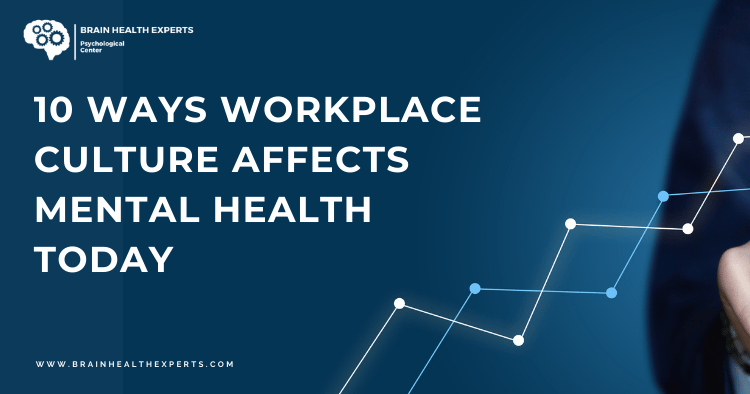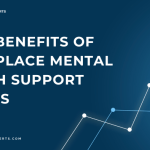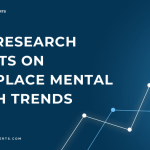Table of Contents
- Introduction
- 1. Open Communication Fosters Trust
- 2. Recognition and Appreciation Boosts Morale
- 3. Work-Life Balance is Essential
- 4. Inclusivity Enhances Well-Being
- 5. Supportive Leadership Matters
- 6. Employee Autonomy Promotes Engagement
- 7. Healthy Conflict Resolution Reduces Stress
- 8. Opportunities for Growth and Development
- 9. A Safe and Comfortable Physical Environment
- 10. Social Connections Improve Mental Health
- Conclusion
- FAQs
Introduction
In today’s fast-paced work environment, the culture of a workplace plays a pivotal role in shaping employees’ mental health. A positive workplace culture can lead to increased job satisfaction, reduced stress levels, and enhanced productivity. Conversely, a toxic culture can contribute to burnout, anxiety, and various mental health issues. In this article, we’ll explore 10 ways workplace culture affects mental health today and how organizations can cultivate a healthier environment for their employees.
1. Open Communication Fosters Trust
Open lines of communication create a culture of trust. When employees feel safe to express their thoughts and concerns without fear of retribution, it leads to a more engaged workforce. A 2021 study by the American Psychological Association found that employees who felt heard reported lower levels of stress and anxiety. Encouraging regular feedback sessions, anonymous surveys, and open-door policies can significantly enhance communication and improve mental health. For more on boosting communication in the workplace, check out 10 Effective Strategies to Enhance Workplace Mental Health.
“Communication is not just about talking; it’s about being heard.”
2. Recognition and Appreciation Boosts Morale
Feeling valued is a fundamental human need. Recognition can take many forms—verbal praise, awards, or even a simple ‘thank you.’ When leaders acknowledge their employees’ efforts, it boosts morale and fosters a sense of belonging. According to Gallup, organizations with high recognition levels report lower turnover rates and higher job satisfaction, positively impacting overall mental health. Explore more about recognition in the workplace with 10 Ways Positive Thinking Boosts Workplace Success.
| Type of Recognition | Impact on Mental Health |
|---|---|
| Verbal Praise | Boosts confidence |
| Awards | Enhances motivation |
| Team Celebrations | Builds camaraderie |
“A little recognition can go a long way in making employees feel valued.”
3. Work-Life Balance is Essential
The line between work and personal life has blurred over the years, especially with the rise of remote work. Organizations that prioritize work-life balance help employees recharge and prevent burnout. Studies indicate that employees who maintain a healthy work-life balance are less prone to anxiety and depression. For tips on achieving a balanced life, refer to 10 Tips for Achieving Work-Life Balance Boosting Mental Health.
“Balance is not better time management, but better boundary management.”
4. Inclusivity Enhances Well-Being
An inclusive workplace culture values diversity and promotes equality. When employees feel accepted and valued for their unique identities, it enhances their mental well-being. Research from the Harvard Business Review indicates that inclusive workplaces foster innovation and creativity, leading to better overall performance and reduced stress levels. Training programs and awareness campaigns can help cultivate an inclusive environment. For more insights, check out 10 Ways Positive Thinking Fuels Personal Growth Journey.
“Inclusion is not a matter of political correctness. It is the key to growth.”
5. Supportive Leadership Matters
Leaders who prioritize mental health create a culture where employees feel supported. A supportive leadership style includes actively listening to concerns, offering resources for mental health, and being approachable. According to a survey by Mind, 65% of employees stated that the support of their manager significantly impacted their mental health. For leadership strategies, see Top 5 Mental Health Training Tips for Managers 2024.
“Great leaders inspire greatness in others.”
6. Employee Autonomy Promotes Engagement
Empowering employees with autonomy can lead to increased job satisfaction and mental health. When individuals have control over how they complete their tasks, it fosters creativity and ownership. A study by McKinsey found that employees who felt they had control over their work were 22% more engaged. Learn more about how autonomy affects mental well-being in 10 Ways Positive Thinking Transforms Your Daily Life.
“Autonomy breeds innovation.”
7. Healthy Conflict Resolution Reduces Stress
Conflict is inevitable in any workplace, but how it’s handled can significantly impact mental health. A culture that promotes healthy conflict resolution allows employees to address issues constructively rather than letting them fester. Training on effective communication and conflict resolution strategies can help teams navigate disagreements and reduce workplace stress. For techniques on managing stress, read 10 Proven Stress Management Techniques for Daily Relief.
“Conflict can be a catalyst for growth when handled properly.”
8. Opportunities for Growth and Development
Employees thrive in environments that offer opportunities for growth. Providing training programs, mentorship, and career advancement options can significantly enhance job satisfaction and mental health. According to LinkedIn, 94% of employees would stay at a company longer if it invested in their career development. For insights into enhancing resilience through growth opportunities, refer to 10 Effective Strategies for Building Resilience in Mental Health.
“Investing in your employees’ growth is investing in your company’s future.”
9. A Safe and Comfortable Physical Environment
The physical workspace plays a crucial role in mental health. A cluttered, noisy, or uncomfortable environment can lead to increased stress levels. Organizations should prioritize ergonomics, cleanliness, and a welcoming atmosphere. Consider conducting regular assessments to ensure the physical workspace meets employees’ needs. Learn more about how a positive physical environment supports mental health in 10 Ways Positive Thinking Boosts Physical Health.
“Your workspace should inspire and support your best work.”
10. Social Connections Improve Mental Health
Building strong social connections in the workplace can reduce feelings of isolation and loneliness. Encouraging team-building activities, social events, and collaborative projects can help foster these connections. According to research from the National Institute of Mental Health, strong social ties can lead to improved mental health outcomes. Discover more about fostering positive relationships in 10 Ways Positive Thinking Transforms Your Relationships.
“Connection is the energy that is created between people when they feel seen, heard, and valued.”
Conclusion
Workplace culture is a powerful influencer of mental health. By prioritizing open communication, recognition, work-life balance, inclusivity, supportive leadership, employee autonomy, healthy conflict resolution, growth opportunities, a safe environment, and social connections, organizations can create a culture that promotes mental well-being. Investing in the mental health of employees is not just beneficial for the individuals but also for the organization as a whole.
FAQs
1. How can organizations assess their workplace culture?
Organizations can conduct employee surveys, focus groups, and anonymous feedback tools to gauge workplace culture and identify areas for improvement.
2. What are some signs of a toxic workplace culture?
Signs include high turnover rates, low employee morale, lack of communication, and widespread stress or burnout among employees.
3. How can leaders support mental health in the workplace?





